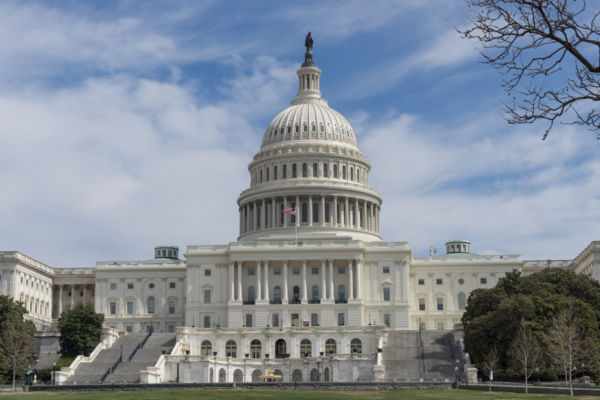COVID spending talks have picked up significant momentum this week. If an agreement can be reached, the provisions will likely be attached to an appropriations bill to extend government funding beyond Dec. 11.
A new "targeted" bill being circulated by Senate Republicans in consultation with the White House would provide liability protection for COVID-related personal injury claims against businesses; a 1-month extension of the Pandemic Unemployment Assistance and Pandemic Emergency Unemployment Compensation (but not a federal unemployment supplement); a second round of the Paycheck Protection Program; and additional emergency appropriations for the coronavirus health response. This bill leaves out top Democratic priorities such as state and local government funding.
A bipartisan group of senators led by Sen. Joe Manchin (D-WV) and several Republicans also proposed a relief framework on Dec. 1. The proposal includes $160 billion in state and local funding and PPP deductibility, as well as short term federal liability protection (with the purpose of giving states time to develop their own response). It was quickly rejected by Senate Majority Leader Mitch McConnell.
Beyond this specific proposal, this development is noteworthy in that it previews the "moderate senators" that could form a real power center in the closely divided Senate next year regardless of which party is in control. The group includes Republican senators Collins (ME), Cassidy (LA), Murkowski (AK), and Romney, and Democratic senators Manchin (WV), Warner (VA), Shaheen (NH), King (ME) and Hassan (NH).
NATSO has been actively lobbying for liability protection, PPP enhancements and tax deductibility, and a "healthy workplace tax credit" to help cover companies' unanticipated virus mitigation expenses to be included in any COVID relief bill.
Congress appears on track to pass a short-term "continuing resolution" to keep the government funded until mid-March (though a longer-term "omnibus" is still a possibility). A short-term deal would set up a must-pass legislative vehicle for the first few weeks of the new Biden Administration. That could be an opportunity for another round of COVID funding, and would prove an early test of the Biden Administration's skills on the Hill, and an early look at the power dynamics of this new configuration of D.C.
Senate Majority Leader Mitch McConnell is considering attaching his narrower COVID package to a year-end spending bill.
If no COVID relief bill is passed before year's end, it could have significant macroeconomic consequences.
Specifically:
- About 7 million freelancers / independent contractors and others who don't qualify for traditional jobless aid will lose their emergency aid ($1,058/month);
- Almost 5 million Americans who have been out of work for at least six months would be cut off from aid. ($1,253/month). The usual limit on unemployment benefits is 26 weeks, and a provision that extended it to 39 weeks is expiring;
- Several million people could face home eviction because a federal moratorium would expire;
- Twenty-one million people will have to begin making student-loan payments again;
- Aid to state and local governments ($150 billion) would expire, prompting hundreds of municipalities to make cuts to schools, police forces, health care, and other programs.
Subscribe to Updates
NATSO provides a breadth of information created to strengthen travel plazas’ ability to meet the needs of the travelling public in an age of disruption. This includes knowledge filled blog posts, articles and publications. If you would like to receive a digest of blog post and articles directly in your inbox, please provide your name, email and the frequency of the updates you want to receive the email digest.

